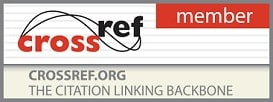Impact Factor: Impact Factor(RJIF): 5.3
International Journal of Home Science
2019, VOL. 5 ISSUE 1, PART A
Educators reflections of the instructional time in JC integrated consumer science curriculum
Author(s): Dr. Dumisa Celumusa Mabuza and Prof. Simon Bheki Khoza
Abstract:
The instructional time concept triggered an outcry in the teaching of Consumer Sciences in Swaziland, mostly on the magnitude and quality time educators have for instruction, this having power to influence student achievement. This study therefore explored the reflections of the educators on the instructional time. Four data generation methods; reflective activity, interviews, observation, and focus groups through action research were used. The findings hold that educators have limited time for teaching Consumer Sciences. Even though they are aware of this and the way in which it affects their teaching, they have no idea how much time is sufficient, and what the expectations of the curriculum are. Moreover, educators practise looping, confirming that this is a very effective practice. On the other hand, both Consumer Sciences educators and school administrators, while there is no policy document in control, take up instructional time through sporting activities and poor classroom management. It is recommended that Consumer Sciences lessons be allocated at least six periods of 45 minutes a week. The Ministry of Education should amend a policy document to specify recommended time for the subject and control use of instructional time taken up by other school activities.
The instructional time concept triggered an outcry in the teaching of Consumer Sciences in Swaziland, mostly on the magnitude and quality time educators have for instruction, this having power to influence student achievement. This study therefore explored the reflections of the educators on the instructional time. Four data generation methods; reflective activity, interviews, observation, and focus groups through action research were used. The findings hold that educators have limited time for teaching Consumer Sciences. Even though they are aware of this and the way in which it affects their teaching, they have no idea how much time is sufficient, and what the expectations of the curriculum are. Moreover, educators practise looping, confirming that this is a very effective practice. On the other hand, both Consumer Sciences educators and school administrators, while there is no policy document in control, take up instructional time through sporting activities and poor classroom management. It is recommended that Consumer Sciences lessons be allocated at least six periods of 45 minutes a week. The Ministry of Education should amend a policy document to specify recommended time for the subject and control use of instructional time taken up by other school activities.
Pages: 01-07 | 736 Views 223 Downloads
How to cite this article:
Dr. Dumisa Celumusa Mabuza, Prof. Simon Bheki Khoza. Educators reflections of the instructional time in JC integrated consumer science curriculum. Int J Home Sci 2019;5(1):01-07.






